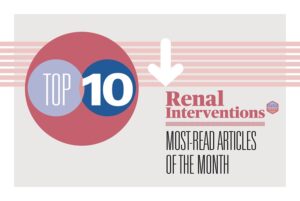 November was a month of demands for more vascular access (VA) training, novel technologies, and regulations, with Terry Litchfield highlighting the importance of compliance within practices and a new training course being announced at Newcastle University.
November was a month of demands for more vascular access (VA) training, novel technologies, and regulations, with Terry Litchfield highlighting the importance of compliance within practices and a new training course being announced at Newcastle University.
In a presentation at the VEITHsymposium 2023 (14–18 November, New York, USA), Terry Litchfield (president, Access Solutions) outlined what she believes to be the key factors for ensuring effective compliance for vascular access providers. Key factors that she highlighted was fostering a culture of compliance within a practice, ensuring that every member of staff knows the rules, and several others.
In a presentation taking place at the latest Vascular Access Society of Britain and Ireland (VASBI) meeting (28–29 September, Birmingham, UK), Thomas Richards (University Hospital Sussex, Brighton, UK) gave a presentation outlining an abstract which states that over half of UK senior vascular surgery trainees surveyed believe that they are not able to undertake independent primary access surgery.
Xeltis has announced “highly encouraging” 12-month results from its first-in-human (FIH) aXess vascular conduit trial. The data were presented by Frans Moll (University Medical Center Utrecht, Utrecht, The Netherlands) at this year’s VEITHsymposium.
A new postgraduate certificate (PGCert) training course for interventional nephrology (IN) has become available at Newcastle University and, according to Saeed Ahmed (South Tyneside Sunderland Foundation Trust, Sunderland, UK), this course will meet an urgent need for more training in the field of IN.
Diality introduced its Moda-flx haemodialysis system on 4 November 2023 at the American Society of Nephrology (ASN) Kidney Week meeting, where it was also the subject of a poster session titled ‘Blood flowrate accuracy with Diality haemodialysis systems’. Diality’s goal for the Moda-flx Hemodialysis System is to reduce the burden of care for all kidney care stakeholders and progress Diality’s mission of improving lives impacted by kidney disease.
A new study from the University of Louisville, led by Adam E Gaweda (University of Louisville Health Sciences Center, Louisville, USA), was presented at the ASN Kidney Week meeting (1–5 November 2023, Philadelphia, USA), which suggests that the use of artificial intelligence (AI) could help predict complications during dialysis treatments.
The Fresenius Medical Care 2008 Series haemodialysis machine recall has been issued with a class I label—the most serious type of recall—by the US Food and Drug Administration (FDA). The recall was initiated in late 2022, when concerns were raised over non-dioxin-like (NDL) polychlorinated biphenyl acids (PCBAs) leaching from some of the tubing used in the devices, but the FDA label was only recently applied in early October 2023.
A new validation study regarding the Klinrisk model—a machine-learning tool developed to predict the risk of chronic kidney disease (CKD) progression—has been conducted by Boehringer Ingelheim and Carelon Research. The novel AI model was able to predict disease progression in over 80% of participants at all stages of disease over a five-year period, based on data from a diverse population of over four million adults in the USA.
VentureMed has announced that they have been granted a transitional pass-through (TPT) payment category and a new Healthcare Common Procedure Coding System (HCPCS) C-code by the Centers for Medicare and Medicaid Services (CMS) for the FLEX vessel prep (FLEX VP) system (VentureMed), which will be effective from 1 January 2024 and will remain for the following two to three years. This TPT will allow outpatient facilities to utilise FLEX VP by providing incremental payments.
Data that was presented at the ASN Kidney Week meeting (2–5 November 2023, Philadelphia, USA) shows that patients who have ceased dialysis treatments “typically survive around one week”, with most patients dying in acute care settings, despite this being “often not in keeping with their wishes,” according to Kirsten Hepburn (Kidney Health Service, Metro North Hospital and Health Service, Brisbane, Australia) et al.










